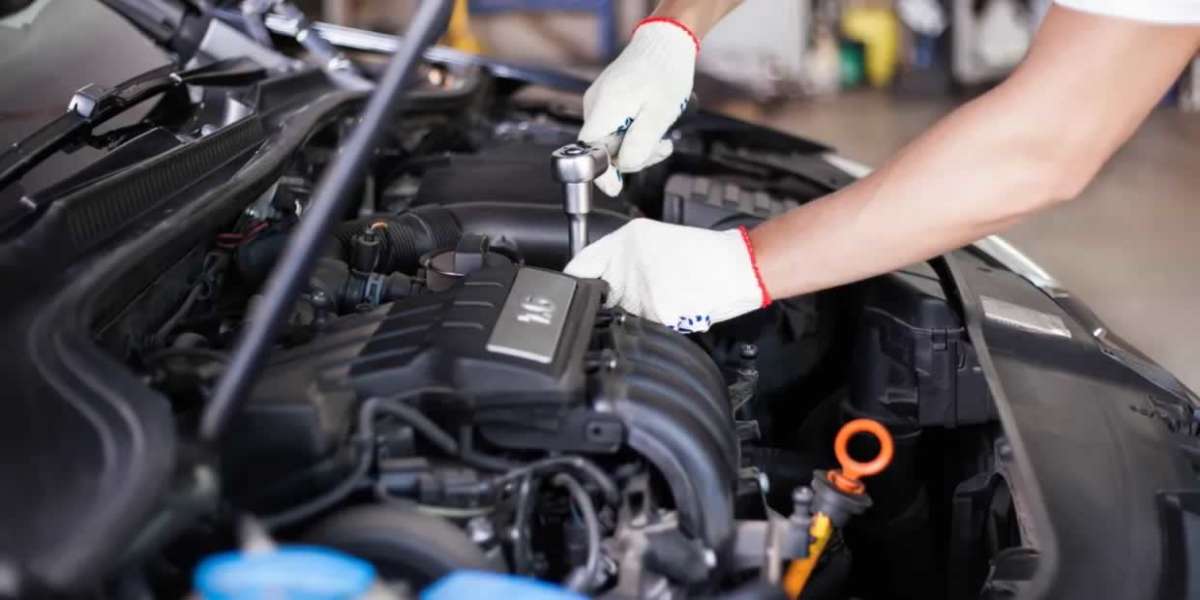Efficiently maintaining your car’s engine is crucial for its longevity and performance. Neglecting engine maintenance can lead to costly repairs and reduced fuel efficiency. In this article, we’ll explore this topic, providing you with essential tips to help you keep your car engine healthy through optimal maintenance.
To keep your car engine healthy, prioritize regular oil changes, maintain the cooling system, replace air filters, care for the fuel system, perform routine checks, drive mindfully, and ensure engine cleanliness.
Now, let’s go into the details of these steps.
1. Regular Oil Changes
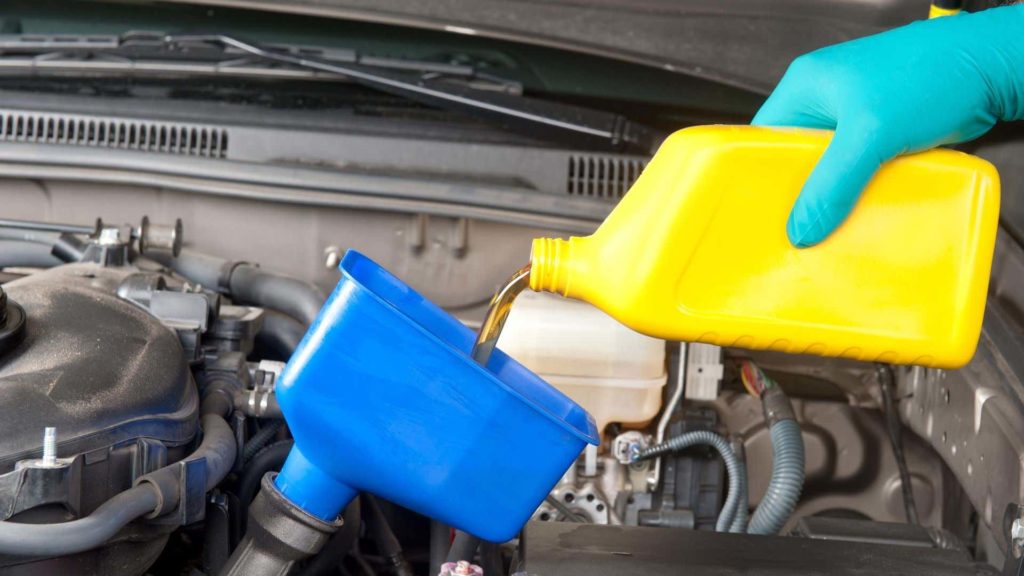
Regular oil changes are fundamental for maintaining a healthy car engine. Engine oil acts as a lubricant, reducing friction between moving parts, preventing wear and tear, and dissipating heat generated during engine operation. Over time, oil breaks down and becomes contaminated with dirt, debris, and combustion byproducts, compromising its effectiveness. Regular oil changes remove old, degraded oil and replace it with fresh oil, ensuring proper lubrication and protection for engine components.
Importance of Regular Oil Changes
- Lubrication: Engine oil lubricates vital components such as pistons, crankshafts, and camshafts, reducing friction and preventing metal-to-metal contact.
- Heat Dissipation: Oil helps dissipate heat generated during engine operation, preventing overheating and maintaining optimal operating temperatures.
- Contaminant Removal: Oil carries away dirt, debris, and combustion byproducts from the engine, preventing buildup and maintaining cleanliness.
- Engine Longevity: Regular oil changes prolong engine life by reducing wear and tear on components and preventing premature failure.
Recommended Oil Change Intervals
- Mileage-Based Intervals: Follow manufacturer recommendations for mileage-based oil change intervals, typically ranging from 3,000 to 10,000 miles.
- Time-Based Intervals: Consider time-based intervals, especially for vehicles with limited use, to prevent oil degradation due to age.
Signs That Oil Needs Changing
- Low Oil Level: Check oil level regularly using the dipstick and top up as needed to maintain the recommended level.
- Dark, Dirty Oil: Inspect oil color and consistency; dark or murky oil indicates contamination and the need for a change.
- Dashboard Warning Lights: Pay attention to oil pressure warning lights or service indicators, signaling the need for an oil change.
DIY vs. Professional Oil Changes
- DIY: Perform oil changes yourself to save money and customize oil and filter choices.
- Professional: Seek professional services for convenience, expertise, and comprehensive inspections.
Regular oil changes are a simple yet vital aspect of engine maintenance that you must not joke with.
2. Proper Cooling System Maintenance
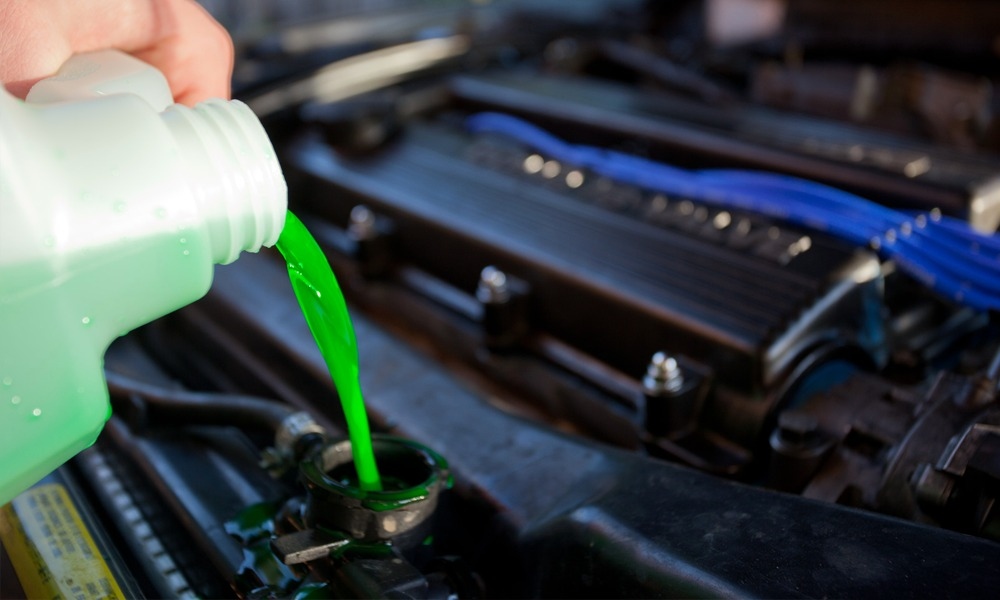
Your car’s cooling system plays a crucial role in regulating engine temperature and preventing overheating, which can lead to severe engine damage if left unchecked. Ensuring that it functions optimally is therefore paramount for the health and longevity of your car’s engine.
Here’s a detailed look at how to effectively maintain your car’s cooling system:
Check Coolant Levels
- Regularly inspect the coolant reservoir to ensure it’s at the proper level.
- Top up coolant as needed with a mixture of coolant and distilled water to maintain the correct ratio.
Inspect Hoses and Belts
- Periodically examine hoses and belts for signs of wear, cracks, or leaks.
- Replace worn or damaged hoses and belts promptly to prevent coolant leaks and system failures.
Flush the Cooling System as Recommended
- Schedule regular coolant flushes according to manufacturer recommendations.
- Flushing the cooling system removes old coolant, debris, and contaminants, ensuring optimal performance.
Check Radiator and Thermostat
- Inspect the radiator for signs of damage or corrosion and ensure proper airflow through the fins.
- Test the thermostat to ensure it opens and closes correctly, regulating coolant flow as needed.
Promptly Fix Cooling System Leaks
- Investigate and repair any coolant leaks promptly to prevent coolant loss and overheating.
- Check for leaks in hoses, radiator, water pump, and gaskets, and address any issues immediately.
Use the Right Coolant
- Use the type of coolant recommended by the vehicle manufacturer to prevent compatibility issues.
- Ensure the coolant mixture is appropriate for the climate and temperature conditions in your area.
Prevent Overheating
- Avoid driving in stop-and-go traffic or idling for extended periods, as this can increase the risk of overheating.
- Monitor engine temperature gauges and respond promptly to any signs of overheating by pulling over and allowing the engine to cool down.
Professional Maintenance
- Consider scheduling periodic inspections and maintenance with a qualified mechanic or service center.
- Professional technicians can perform thorough checks and address any potential issues before they escalate.
The steps outlined above can help ensure that your car’s engine stays cool and operates smoothly, minimizing the risk of overheating and costly repairs.
3. Air Filter Replacement
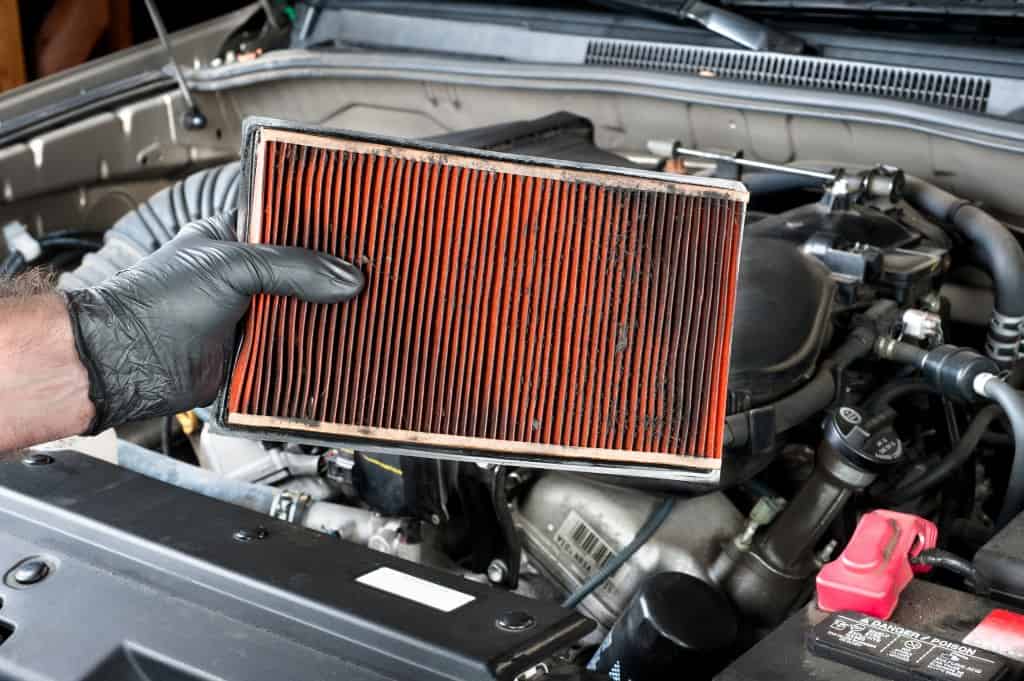
Your car’s air filter serves as the first line of defense against contaminants entering the engine, such as dust, dirt, pollen, and debris. Over time, the air filter becomes clogged with these particles, restricting airflow to the engine and reducing performance. If you continue to use it like this, you can damage your car engine.
Here’s a detailed look at why air filter replacement is essential and how to do it effectively:
Importance of Air Filter Replacement
- Engine Protection: A clean air filter prevents harmful contaminants from reaching the engine, reducing the risk of car engine damage and wear.
- Optimal Performance: A clogged air filter restricts airflow to the engine, leading to reduced fuel efficiency, power loss, and rough idling.
- Extended Car Engine Life: Regular air filter replacement helps prolong the life of engine components by ensuring proper airflow and combustion.
Signs of a Dirty or Clogged Air Filter
- Reduced Performance: Noticeable decrease in engine power, acceleration, and fuel efficiency.
- Rough Idling: Engine idles roughly or stalls when at a standstill.
- Check Engine Light: Illumination of the check engine light on the dashboard may indicate a clogged air filter and reduced engine performance.
- Visible Dirt and Debris: Visibly dirty or clogged air filter when inspected.
Recommended Replacement Intervals
- Consult the vehicle manufacturer’s recommendations for the recommended air filter replacement interval.
- In general, air filters should be replaced every 12,000 to 15,000 miles or as specified in the owner’s manual.
DIY Air Filter Replacement
- Locate the air filter housing under the hood of the vehicle.
- Remove the housing cover and old air filter, taking note of its orientation.
- Install the new air filter, ensuring it is properly seated and oriented according to the manufacturer’s instructions.
- Reattach the housing cover and secure it in place.
Professional Air Filter Replacement
- Consider having the air filter replaced during routine maintenance visits or oil changes.
- Professional technicians can inspect the air filter and replace it as needed, ensuring proper installation and performance.
Whether performing the replacement yourself or seeking professional services, maintaining a clean air filter is essential for optimal car engine health and performance.
4. Fuel System Maintenance
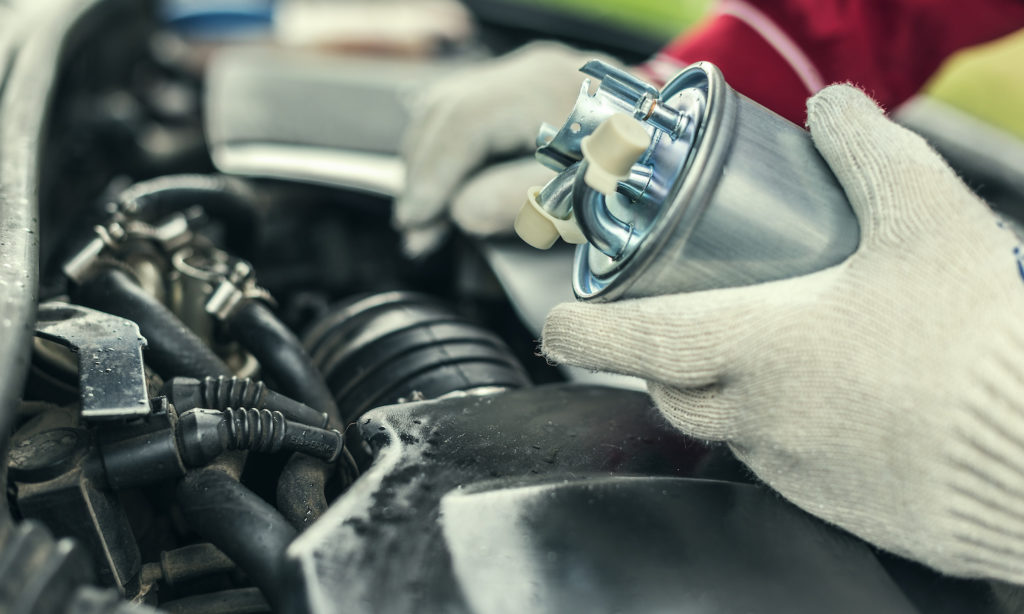
Maintaining the fuel system of your vehicle is an essential part of keeping its engine performing at full efficiency. The fuel system plays a crucial role in delivering fuel to the car engine cylinders for combustion, ensuring smooth operation and power generation. Over time, various components of the fuel system can become dirty, clogged, or worn, leading to reduced fuel efficiency and engine performance. Here’s a comprehensive overview of fuel system maintenance and why it’s essential:
Importance of Fuel System Maintenance
- Efficient Combustion: A clean and properly functioning fuel system ensures efficient fuel delivery and combustion, maximizing engine performance.
- Fuel Efficiency: Regular maintenance prevents fuel system issues such as clogged injectors or filters, which can lead to decreased fuel economy.
- Engine Longevity: Proper fuel system maintenance helps prevent premature wear and tear on engine components, prolonging engine life.
Components of the Fuel System
- Fuel Tank: Stores fuel and contains a fuel pump that delivers fuel to the engine.
- Fuel Lines: Transport fuel from the tank to the engine.
- Fuel Filter: Removes impurities and debris from the fuel before it reaches the engine.
- Fuel Injectors: Spray fuel into the engine cylinders for combustion.
- Throttle Body: Controls the amount of air entering the engine, affecting fuel-air mixture and engine performance.
Tips for Fuel System Maintenance
- Use High-Quality Fuel: Use fuel from reputable sources to prevent contamination and ensure optimal engine performance.
- Replace Fuel Filter: Follow manufacturer recommendations for fuel filter replacement intervals to prevent clogs and fuel delivery issues.
- Use Fuel Additives: Periodically use fuel additives designed to clean fuel injectors and remove carbon deposits from the combustion chamber.
- Check for Leaks: Regularly inspect fuel lines and connections for signs of leaks, corrosion, or damage, and address any issues promptly.
- Professional Inspection: Consider having the fuel system inspected by a qualified technician during routine maintenance visits to identify and address potential issues early.
Ensuring fuel system maintenance can help your car’s engine operate at peak efficiency, maximizing performance and fuel economy. Regular inspection, cleaning, and replacement of fuel system components will help preserve car engine health and reliability for many years.
5. Regular Car Engine Maintenance Checks
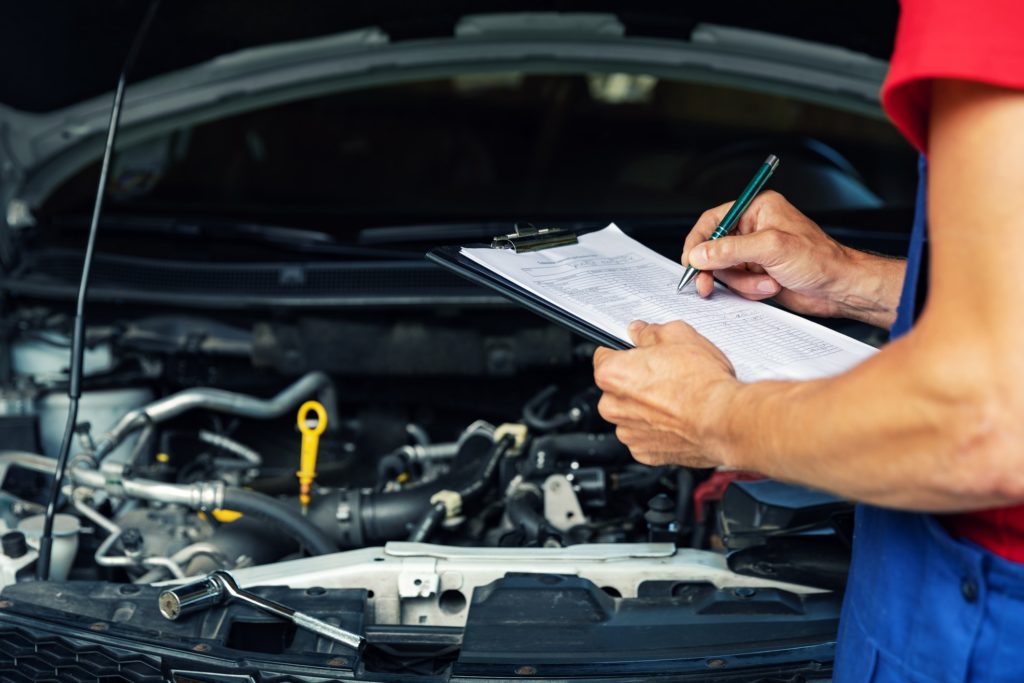
Regular maintenance checks are crucial for ensuring the overall health and performance of any car engine. These checks involve inspecting various components and systems to identify any potential issues early on, allowing for timely repairs and preventative maintenance. Let’s take a look at why regular maintenance checks are essential and what components to inspect.
Importance of Regular Maintenance Checks
- Early Problem Detection: Regular inspections help identify potential issues before they escalate into major problems, preventing costly repairs down the line.
- Preventative Maintenance: Addressing minor issues early through routine checks can help prevent more significant problems from occurring, prolonging the life of engine components.
- Safety Assurance: Ensuring that all systems are in proper working order through regular checks contributes to a safer driving experience for you and your passengers.
- Optimal Performance: Regular maintenance checks help keep your engine running smoothly and efficiently, maximizing fuel economy and performance.
Components to Check During Maintenance
- Fluid Levels: Check engine oil, coolant, transmission fluid, brake fluid, and power steering fluid levels and top up as needed.
- Belts and Hoses: Inspect belts for signs of wear, cracking, or fraying, and check hoses for leaks or damage.
- Battery: Check battery terminals for corrosion and ensure a secure connection; inspect the battery for signs of aging or damage.
- Lights: Test all exterior and interior lights, including headlights, taillights, brake lights, turn signals, and dashboard lights.
- Brakes: Inspect brake pads and rotors for wear and check brake fluid levels.
- Tires: Check tire pressure, tread depth, and overall condition, including signs of uneven wear or damage.
- Filters: Inspect air filters, cabin air filters, and fuel filters for dirt or clogs and replace as needed.
- Suspension and Steering: Check suspension components for signs of wear or damage and ensure proper steering responsiveness.
- Exhaust System: Inspect the exhaust system for leaks, rust, or damage, including the catalytic converter and muffler.
Frequency of Maintenance Checks
- Follow the manufacturer’s recommended maintenance schedule outlined in the owner’s manual.
- Perform routine checks at regular intervals, such as monthly or before long trips, in addition to scheduled maintenance visits.
Consistent attention to maintenance contributes to a safer, smoother driving experience and helps you avoid unexpected breakdowns or repairs.
6. Driving Habits and Techniques

This may come as a surprise to you but driving habits and techniques can significantly impact the health and longevity of your car engine. You can reduce or increase wear and tear on engine components with your driving style. The same applies to fuel efficiency and general the life of your vehicle.
Here are some essential driving tips to consider:
Accelerate and Decelerate Smoothly
- Avoid aggressive acceleration and sudden braking, as they can put unnecessary stress on the engine and transmission.
- Gradually accelerate and decelerate to maintain a smooth and steady driving pace, minimizing strain on engine components.
Avoid Excessive Idling
- Limit idling time, as prolonged idling can lead to fuel wastage and increased engine wear.
- Turn off the engine if you anticipate being stationary for an extended period to conserve fuel and reduce emissions.
Maintain Moderate Speeds
- Drive at moderate speeds, as high speeds increase aerodynamic drag and fuel consumption, putting more strain on the engine.
- Avoid unnecessary speeding, which can accelerate engine wear and reduce fuel efficiency.
Use Cruise Control Wisely
- Utilize cruise control on highways to maintain a consistent speed and reduce fluctuations in engine load.
- Avoid using cruise control on hilly or winding roads, as it may cause unnecessary gear shifts and strain on the engine.
Minimize Heavy Loads
- Avoid overloading your vehicle with excessive cargo, as it can increase strain on the engine and suspension components.
- Distribute weight evenly and avoid carrying unnecessary items to reduce fuel consumption and minimize wear on the engine.
Warm Up the Engine Properly
- Allow the engine to warm up for a few minutes before driving, especially in cold weather, to ensure proper lubrication and temperature regulation.
- Avoid excessive idling during warm-up, as it wastes fuel and prolongs the time it takes for the engine to reach operating temperature.
If you weren’t aware of how your driving can affect the health of your car engine, you now know and should begin to make the necessary adjustments.
Keeping Your Engine Clean
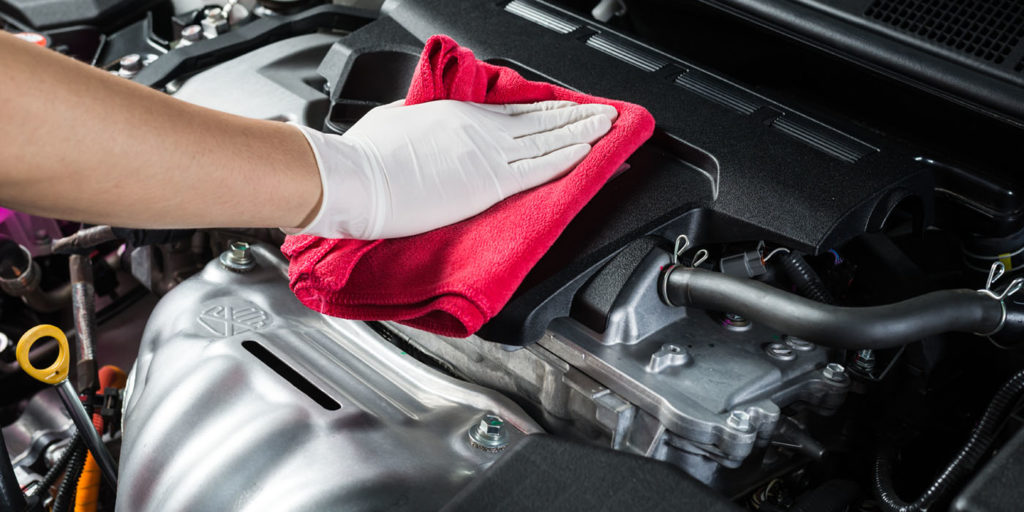
A clean engine not only looks good but also functions more efficiently, as it reduces the risk of contaminants interfering with critical engine components.
Before we discuss how to keep your car engine clean, let’s first elaborate on the importance of having a clean car engine.
Importance of Car Engine Cleanliness
- Heat Dissipation: A clean engine dissipates heat more effectively, preventing overheating and potential damage to engine components.
- Reduced Corrosion: Dirt and debris can trap moisture, leading to corrosion of metal components. Keeping the engine clean helps prevent corrosion and prolongs the life of the engine.
- Easy Maintenance: A clean engine makes it easier to spot leaks, worn components, or other issues during routine maintenance checks.
Let’s now look at how to keep your car engine clean.
Steps for Keeping Your Car Engine Clean
- Regular Washing: Use a gentle degreaser and a soft brush to clean the engine bay periodically. Avoid using high-pressure water, as it can force water into sensitive electrical components.
- Inspect for Leaks: Regularly check for oil, coolant, or other fluid leaks in the engine bay. Address any leaks promptly to prevent fluid buildup and contamination.
- Clean Air Intake: Inspect and clean the air intake system, including the air filter and intake ducts, to ensure proper airflow and prevent debris from entering the engine.
- Use Engine Bay Covers: Consider using engine bay covers or shields to protect sensitive components from dirt, debris, and moisture.
- Avoid Overfilling Fluids: Be careful not to overfill engine fluids, as excess fluids can spill and create a mess in the engine bay.
- Check for Rust: Regularly inspect metal components in the engine bay for signs of rust or corrosion. Treat any rust spots promptly to prevent further damage.
- Clean Battery Terminals: Keep battery terminals clean and free of corrosion to ensure a secure electrical connection and prevent starting issues.
- Inspect Belts and Hoses: Check belts and hoses for signs of wear or damage caused by dirt buildup. Replace worn or damaged belts and hoses as needed.
Professional Cleaning Services
- Consider hiring professional detailing services for a thorough engine bay cleaning.
- Professional detailers have the expertise and equipment to safely clean engine components without causing damage.
With what we’ve discussed above, you now know that a clean car engine not only enhances the overall appearance of your vehicle but also contributes to its reliability and longevity.
Conclusion
In conclusion, maintaining a healthy car engine is essential for optimal performance and longevity. By following the essential maintenance tips outlined in this article, including regular oil changes, proper cooling system maintenance, air filter replacement, fuel system care, routine checks, mindful driving, and engine cleanliness, you can ensure that your engine runs smoothly and efficiently for years to come.
Ensuring car engine maintenance not only improves vehicle performance but also contributes to safety and reliability on the road. Remember, a well-maintained car engine is key to a smooth and enjoyable driving experience.

